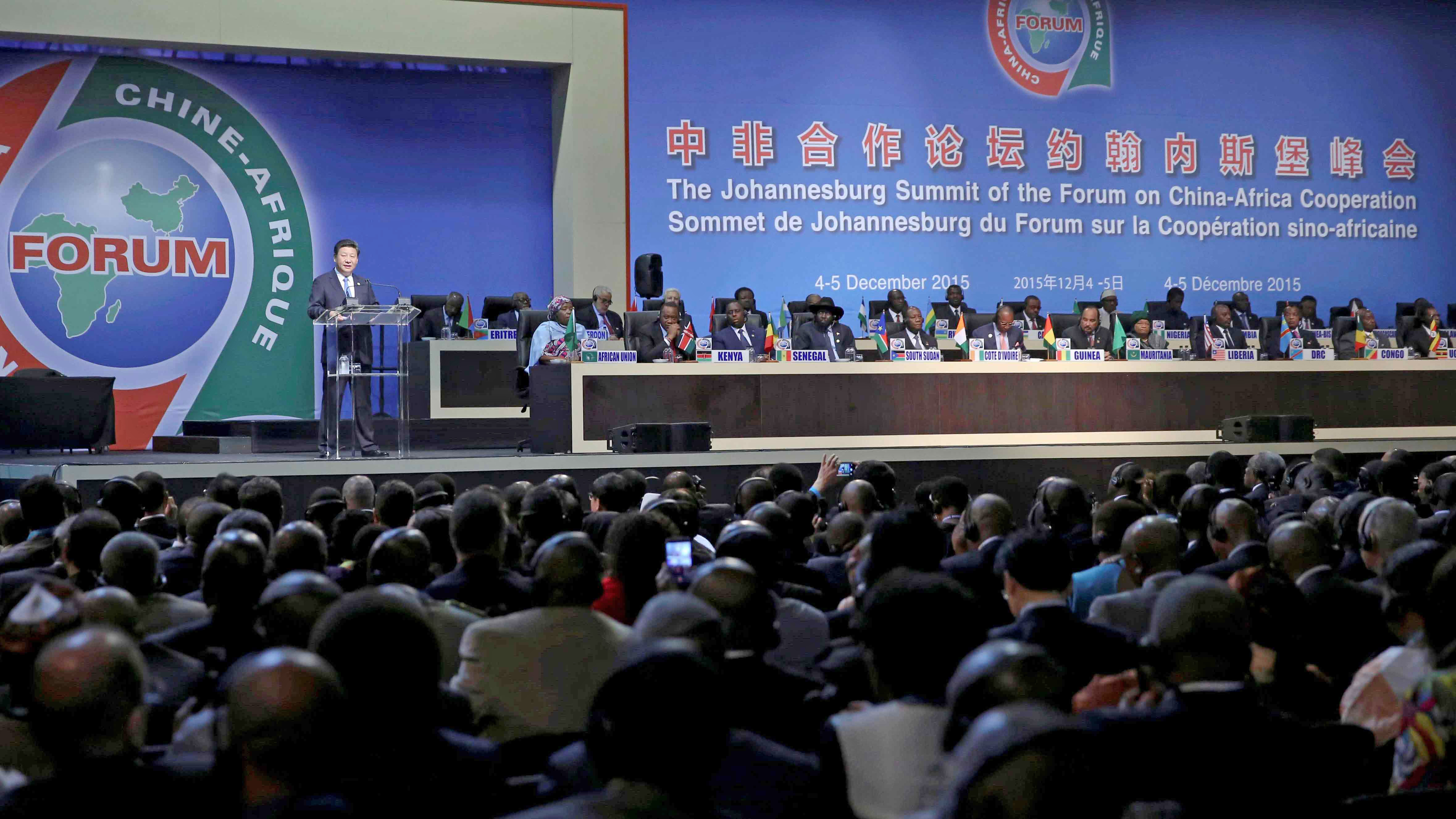Strategic, cooperative partnership marks milestone for China-Africa ties

On Dec. 4, Chinese President Xi Jinping delivers a speech at the opening of the Johannesburg Summit of the Forum on China-Africa Cooperation (FOCAC) in South Africa. At the summit, Xi proposed lifting the China-Africa relationship to a comprehensive strategic cooperative partnership.
The two-day Johannesburg Summit of the Forum on China-Africa Cooperation (FOCAC) kicked off on Dec. 4 in South Africa, with the theme “Africa-China Progressing Together: Win-Win Cooperation for Common Development.” At the summit, Chinese President Xi Jinping, leaders and heads of delegation from 50 African countries as well as African Union Commission Chair Nkosazana Dlamini Zuma exchanged sentiments of traditional friendship and discussed promoting cooperation based on mutual benefit to draw a development blueprint altogether.
During the meeting, Xi delivered what scholars hailed as an epoch-making speech. China proposes that the new type of China-Africa strategic relations be lifted to a comprehensive strategic and cooperative partnership, Xi said.
He gave a comprehensive explanation of Chinese policies and ideas regarding relations with Africa. Moreover, he put forth a five-pronged proposal on further deepening cooperation between the world's second-largest economy and the fast-developing continent. This marked a milestone in the China-Africa relationship, which is heading for a new era of mutual benefit and common development.
Historical exchanges
The meeting consolidated the traditional friendship between China and Africa. China-Africa relations go back to ancient times. In the Han Dynasty (206 BC–AD 220), the Chinese imperial envoy Zhang Qian sent deputy envoy Gan Ying to North Africa during his expedition to Central Asia. At the same time, folk artists from Egypt came to perform in China. In the Ming Dynasty (1368-1644), Chinese explorer Zheng He visited Africa four times and covered most coastal nations in East Africa during his seven expeditionary voyages. When he came back, many African envoys were dispatched to pay a return visit to China along with Zheng’s fleet, and the head of Malindi, a port city in modern-day Kenya, also gifted a giraffe to the Chinese emperor.
The establishment of the People’s Republic of China in 1949 opened a new chapter for China-Africa relations. Xi said, the China-Africa friendship is a choice rooted in history, a fruit of joint efforts by leaders of both sides for generations and two peoples, and it is a valuable legacy.
Mutual benefit, development
The meeting advanced China-Africa ties and promoted cooperation based on mutual benefit. China and Africa have always shared a common destiny. Similarities in historical encounters, emotional foundations and development tasks closely connect Chinese and African people.
Today, China-Africa relations stand at a new starting point in history. Both sides are facing common challenges of how to translate this traditional friendship into the seed of unity, cooperation and development. The goal is to utilize natural and human resources to achieve independent sustainable development while developing the FOCAC into a mechanism for promoting synergy between development strategies. The Johannesburg Summit was held to find solutions to these challenges.
In the past 15 years since the FOCAC was established, various mechanisms have been introduced for the comprehensive, rapid and in-depth development of China-Africa relations. China will always be honest to the continent and stick to the viewpoint of justice and benefit. China will implement 10 cooperation programs over the next three years, with an emphasis put on accelerating industrialization and promoting a modern agriculture in Africa in order to bring real benefits to African people.
Global influence
The meeting set up a new model of international partnership and facilitated balanced development across the world. China-Africa ties remain unshakable and vibrant because China and African nations have always adhered to the principles of equality, sincerity, and mutual benefit and development. As a good example of South-South cooperation, China-Africa ties have strategic meaning and global influence, guiding world development in a more just and inclusive way.
In the new era, friendly China-Africa relations will bring about more benefits to the Chinese and African people. China would like to join hands with Africa in drawing on the wisdom of 2.4 billion people who live in China and on the African continent to create a bright future for bilateral ties.
Li Xinfeng is deputy editor-in-chief of Social Sciences in China Press and an expert of African studies.
